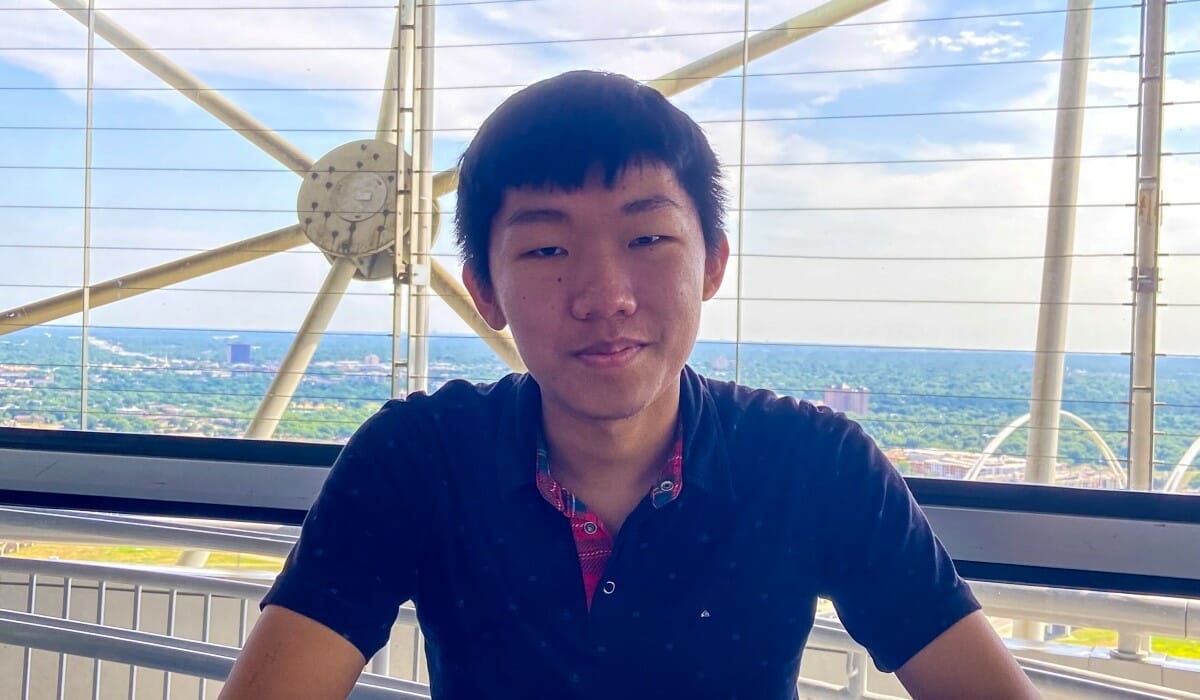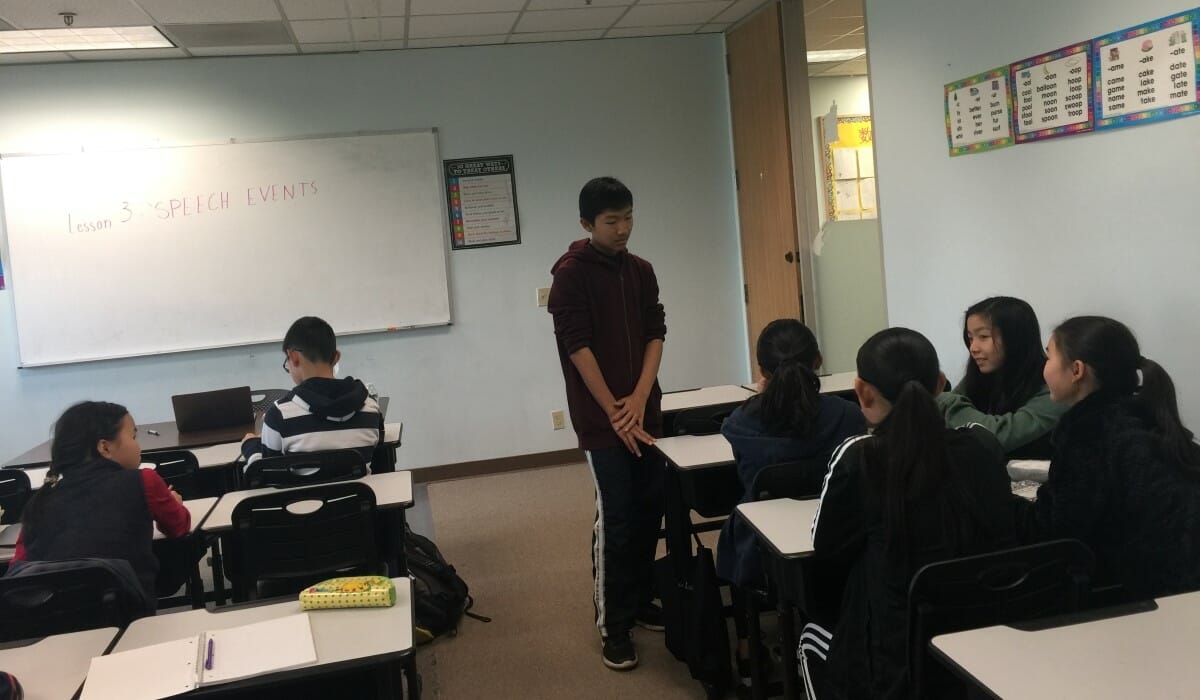High School Senior Creates STEM Opportunities for the Underrepresented

Meet Daily Point of Light Award honoree Tony Wang. Read his story and nominate an outstanding volunteer or family as a Daily Point of Light.
While many service-oriented leaders focus on tackling some of the more visible problems of the world, Tony Wang, 17, takes a different approach. As a longtime STEM enthusiast, he has jumped at the chance to participate in activities like science fair and research opportunities at his well-funded school. When he looked around him, he noticed that not everyone had the same opportunities, and in the summer of 2021, he decided to do something about it.
So amidst completing classes on Zoom and managing the side effects of the pandemic lockdown, he was building the newly formed Alameda County Science and Engineering Fair Student Leadership Board (ACSEF SLB). As he marches towards end of his high school career, he and his team of 50 other high school students across 20 different schools are trying to close the gap in STEM education access.
Reaching out to nearly 100 Title I schools, institutions where students from low-income families make up around 40% of enrollment, Tony and the ACSEF SLB offer free workshops and mentorship with the goal of increasing research opportunities for underprivileged communities and encouraging kids to get involved with science. Tony pulls up others along the way who haven’t have the same chances he has, and it’s this “succeeding together” mindset that has led him to seek a career at the intersection of science and service after graduation.
What inspires you to volunteer?
I come from a relatively affluent part of California, but growing up, I had friends from Oakland and relatives from rural areas of China. Something that really stood out to me was just how stark the difference in the quality of education was between those locations.
At school I have access to core lab materials, and I can produce science fairs. I have all these cool interactive ways of learning science and about the world. But a lot of other people, who I’d say are much smarter than me, don’t have access to the opportunities that I do. They can’t get involved with these things and learn as much as I can. That’s always really bothered me and has driven me on my volunteer journey in the fight for equalizing the educational playing field a little bit.
Describe the setup of the Alameda County Science and Engineering Fair Student Leadership Board (ACSEF SLB) and your volunteer role within it.
The board is split into four main divisions: Mentorship, Communications, Marketing and Activities. Each one has its own team of students and an officer leading it, and they run their own initiatives. My role as president is to oversee all of these. I host meetings with representatives from the divisions to update each other and make sure we’re on the same page. I set the agenda each month for what our goals are as an organization, like what workshops we want to hold, how many hits we want to reach on social media and more. I also spearhead our different initiatives.
What’s been the most rewarding part of your work?
It’s been seeing people build up confidence and curiosity. Throughout our different workshops, I’ve seen some familiar faces keep showing up, and I love that. Sometimes, during our earlier workshops, they will be very hesitant and not even know if they’re going to work on a research project or get involved with the science fair or pursue STEM.

What have you learned through your experiences as a volunteer?
I think the clearer your mission and the more impact-driven your organization is, the more people are willing to collaborate with you and work harder with their volunteering. At the start, we had a lot of different goals, but slowly, we were able to crystallize that into helping underserved and underrepresented students get involved with science research.
As we began to focus more on that and hosting more workshops, we had other volunteer organizations reach out to us. A local library offered to give us laptops and a local robotics team offer to give us demonstrations, because they also believed in the mission and wanted to also be a part of it.
Are there any future partnerships, programs, or events you are excited about?
We’ve mainly been virtual the past couple of years. All of our events have been on Zoom. Our next big focus is doing in-person events. We’re currently planning a large hackathon and Maker Faire in Oakland so that we reach these Title One schools and make sure it’s close to them.
We’re renting buses. We’re going to have tables set up and make this something that students will want to go to, have fun at and want to come back to. As long as they can have fun at these hackathons and workshops—and I think in-person workshops are much more fun—it’ll make our impact much greater. We’ll also be able to directly see how our students are learning.
Why do you think it’s important for others to volunteer?
As members of a community, we all benefit from different things other people have done for us. And when we uplift others, even if it’s just a small thing like comforting a friend or doing something nice for a teacher, it can create such a beautiful kind of butterfly effect. Being able to volunteer is a privilege, because you’re able to work with others to put something positive into the world.
What do you want people to learn from your story?
I really want people to learn that being young isn’t a barrier or an obstacle to creating change. Being young is something that can help you, because young people have a lot of passion. They have a lot of interests and a lot of time, and they are some of the greatest agents for creating positive impact and change. It’s never too early to volunteer.
What do you see for the future of the organization?
I really want the organization to have longevity. I want it to be something that can continue being passed on and to continue changing to fit what the community needs. If there are new things that we want to address or if old issues become less relevant, I definitely want it to be something that can shift focus, and recenter itself on the things that really matter. I just want it to continue creating the biggest impact that it can in whatever shape that may take in the future.
Do you want to make a difference in your community like Tony? Find local volunteer opportunities.
